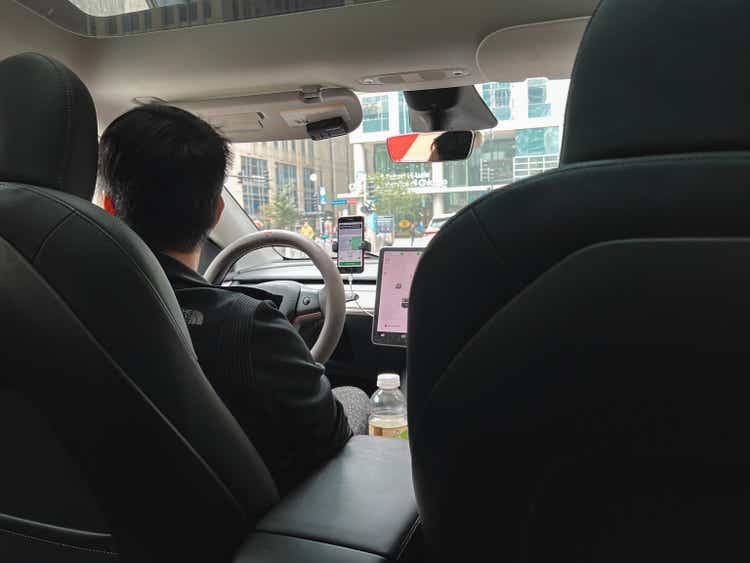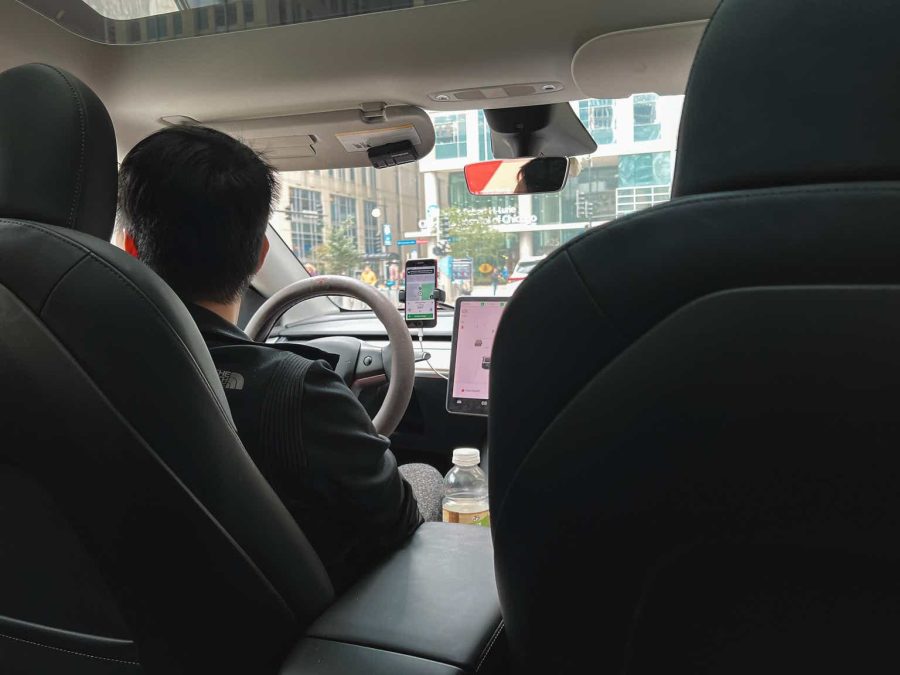Summary:
- DiDi Global’s stock dropped over 6% for two days due to concerns over the impact of Robotaxi on its China business.
- DiDi has been investing in autonomous driving technology since 2016 and is prepared for the potential widespread adoption of Robotaxi in China.
- DiDi’s muted reaction to Baidu’s early success with Robotaxi in Wuhan is strategic, as it aims to avoid creating more trouble with the Chinese government.
Sanya Kushak
Recently DiDi Global (OTCPK:DIDIY)’s stock has been under tremendous pressure as it was down more than 6% for two consecutive days on July 10th and July 11th. The heavy selling is most likely due to concerns over the long term impact of Robotaxi on DiDi’s China business. Specifically, on July 10th, there’s a report that the “Chinese government introduced draft guidelines that support the introduction of Robotaxis in ride hailing and car rental fleets in Beijing”. One day later, CNBC reported that “Baidu’s Robotaxi unit Apollo Go became one of the top 10 trending hashtags on social media platform Weibo on Wednesday amid reports of rapid user adoption in Wuhan city, where the company began operating fully staffless vehicles in certain districts 24/7 in March.” I believe the Robotaxi fear is overblown as DiDi is actually very prepared for the potential wide-spread adoption of Robotaxi in China.
DiDi’s autonomous driving capabilities
Although Baidu has been capturing all the attention on Robotaxi, DiDi is not far behind on the technology at all. According to DiDi’s website,
“DiDi’s autonomous driving unit was set up in 2016 and was committed to delivering world’s leading Level 4 autonomous driving (“AD”) technologies, aiming to make transportation safer and more efficient. In August 2019, this unit was upgraded to an independent company, DiDi Autonomous Driving, focusing on advanced AD technology research and development, product application and other expanded businesses. Up to now, DiDi Autonomous Driving have acquired public road testing licences in Beijing, Shanghai, Suzhou, Hefei, Guangzhou and California, along with one of the first Intelligent Connected Vehicle Demonstration Application License in China that issued by Shanghai. DiDi’s advanced technologies, massive data, rich experience along with complete ecosystem in the mobility field will equip DiDi Autonomous Driving to build and operate world’s leading autonomous fleets.”
In fact, according to DiDi’s news press, DiDi has launched the on-demand Robotaxi service with a fleet of more than 200 Robotaxis in Shanghai in 2020. In March 2021, DiDi “announced a strategic partnership with the Huadu District of Guangzhou to invest in R&D in self-driving technology and commercial applications in the District. In March 2023, DiDi Autonomous Driving started its commercial operation in Huadu District of Guangzhou by accepting fee-based orders.”
In April of 2023, DiDi held an Autonomous Driving Day event in Shanghai. During the event, DiDi announced that DiDi “plans to introduce its first mass-produced Robotaxi to DiDi’s ride-hailing platform by 2025″. DiDi also announced the debut of its brand new autonomous trucking business Kargobot during the event.
Fast forward to April of 2024, DiDi achieved another milestone in its Robotaxis business when DiDi announced that “DiDi Autonomous Driving’s JV with GAC Aion will mass produce crossover SUV Robotaxi in 2025”.
From the above information, it is clear that DiDi has been planning the robotaxi business for many years , and its current technological capability is definitely in the first-tier.
DiDi’s muted reaction to the enthusiasm for the early success of Baidu’s Robotaxi
DiDi has not publicly reacted to the nation-wide attention to the early success of Baidu’s Robotaxi business in Wuhan. I believe this can partially explain why the stock dropped almost 13% in two days. However, the absence of DiDi’s public reaction is very understandable.
As DiDi has already angered the Chinese government with its rushed IPO back in 2021, the last thing DiDi want to do is to create more trouble for the Chinese government. As promising as Robotaxi’s technological advance, it can also create massive social unrest. For instance, CNBC reported that Baidu’s Robotaxi push in Wuhan has “sparked concerns about job security for taxi drivers and ride-hailing drivers, as China had more than 7 million registered ride-hailing drivers as of the end of May, roughly twice as many versus the 3.51 million drivers reported for July 2021, according to the Ministry of Transport.”
Therefore, DiDi’s best strategy is not being the first large-scale commercial operator of Robotaxis. I think DiDi should take a wait-and-see approach for now and let Baidu takes the public controversy as taxi drivers and ride-hailing drivers are already venting their frustration for Baidu on all major social media platforms. It is very likely that the Chinese government will continue to push for the mass-adoption of Robotaxi across the country and one way or another, the taxi drivers and ride-hailing drivers will have to accept the reality. Once the period of the mass protest from taxi drivers is over, DiDi can be more aggressive in pushing for its own Robotaxi business.
Long-term impact of Robotaxi
In the long-term, Robotaxi will have some impact on DiDi’s business, but the extent of the impact is too early to tell. However, there are at least two trends that are clear.
First of all, Robotaxi will not totally replace human taxi and ride-hailing drivers as they are complementary and therefore, will co-exist. The shortcomings of Robotaxi are very clear. For instance, currently Robotaxi works best in near-perfect road conditions. It is super slow even in mild traffic jams because it has to wait for the clear signal that the drivers behind it will yield when switching lanes.
Secondly, there’s an argument that DiDi will not command a dominant position as it has in the ride-hailing business. I think this argument is legitimate as the Robotaxi model is a two-way (platform and passenger) network business model compared to the three-way (platform, passenger and driver) network model of the traditional ride-hailing business. Whether DiDi can be dominant the market will depend heavily on management’s competency and strategic vision.
Conclusion
In the short-term, Robotaxi has very limited impact on DiDi’s business. In the long-term, the potential mass-adoption of Robotaxi presents both a challenge and opportunity for DiDi. Regardless, I believe the recent sell-off of DiDi’s stock is overdone. Investors are better off focusing on DiDi’s fundamentals in the next few quarters.
Editor’s Note: This article discusses one or more securities that do not trade on a major U.S. exchange. Please be aware of the risks associated with these stocks.
Analyst’s Disclosure: I/we have a beneficial long position in the shares of DIDIY either through stock ownership, options, or other derivatives. I wrote this article myself, and it expresses my own opinions. I am not receiving compensation for it (other than from Seeking Alpha). I have no business relationship with any company whose stock is mentioned in this article.
Seeking Alpha’s Disclosure: Past performance is no guarantee of future results. No recommendation or advice is being given as to whether any investment is suitable for a particular investor. Any views or opinions expressed above may not reflect those of Seeking Alpha as a whole. Seeking Alpha is not a licensed securities dealer, broker or US investment adviser or investment bank. Our analysts are third party authors that include both professional investors and individual investors who may not be licensed or certified by any institute or regulatory body.
